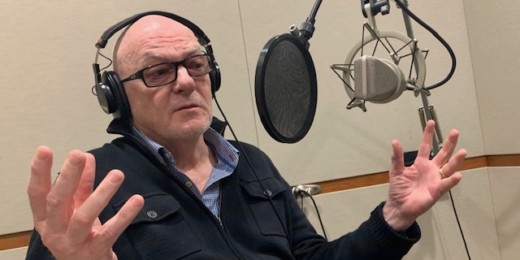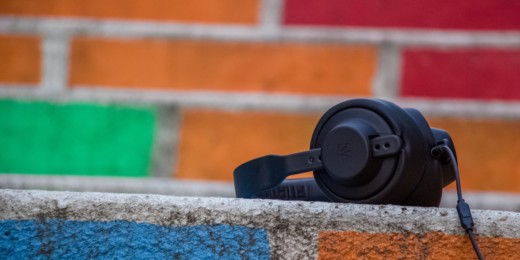There was little warning that 2020 would usher in a calamitous virus that would drastically alter norms for everyone on the planet for nearly a year and counting. Think about that: All of earth united by one biological demon.
For 1:2:1 podcasts this year, I interviewed many extraordinary Stanford Medicine researchers and clinicians who helped listeners understand the mercurial coronavirus. They add to scores of their colleagues and luminaries who have shared their perspectives on biomedicine and health care over the years. Special guests have included former President Jimmy Carter, singer Rene Fleming, politician Dick Cheney, writer and neurologist Oliver Sachs, National Institutes of Health Director Francis Collins, MD, and many more.
It's like playing in a dream sandbox -- no matter where I turn, I find treasure. But this was a year we'll never forget, and my recent podcasts reflect that. I hope you enjoy this review of the top 2020 podcasts that listeners found most compelling:
Robert Harrington
In our podcast, Robert Harrington, MD, the chair of the Stanford Medicine's department of medicine, discussed his ascendency to the presidency of the America Heart Association, and how the association is shifting long-term policy goals toward healthy living and living longer. He also talked about how his upbringing by a young single mother in an inner-city Boston neighborhood informed his career, his character and his life.
Keith Humphreys
Addiction specialist Keith Humphreys, PhD, talked with me about his groundbreaking study validating the work of Alcoholics Anonymous. He said he was long skeptical that the fellowship program could work as well as psychotherapy to help alcoholics quit drinking. But the research showed that AA was more effective than psychotherapy in maintaining sobriety, in part because of the comradery gained from the program.
Megan Mahoney
In a column for STAT News, Megan Mahoney, MD, Stanford Health Care's chief of staff, called for the medical community to look beyond race. So I asked her to discuss how race plays out in clinical settings; what needs to change to overcome systemic racial inequities in health care; and how her biracial upbringing influenced her experiences as a physician.
Yvonne Maldonado
Epidemiologist and pediatrician Yvonne Maldonado, MD, is in the eye of the COVID-19 pandemic, as people nationwide turn to her to make sense of the coronavirus. When we spoke, Maldonado, chief of infection prevention and control at Stanford Children's Health, discussed what scientists know about how COVID-19 affects children, and how virology captured her imagination in college.
Anna Lembke
Stanford psychiatrist Anna Lembke, MD, talks about the pandemic's impact on people addicted to drugs and alcohol. Lembke, chief of Stanford's Addiction Medicine Dual Diagnosis Clinic, said some people with addiction and mental health issues are finding fewer triggers, while others experience added stress brought on by health concerns, financial worries and isolation.
Bali Pulendran
When I talked early this summer with pathology, microbiology and immunology professor Bali Pulendran, PhD, there were about 100 COVID-19 vaccines under development. Now that distribution of coronavirus vaccines is ramping up, it's interesting to look back on Pulendran's explanations of how vaccines help us build antibodies against viruses, and why an effective HIV vaccine eludes scientist.
Angela Rogers
Early in the pandemic, Stanford physician Angela Rogers, MD, described her experience treating COVID-19 patients in Stanford Health Care's intensive care unit. "I have never been prouder to be an ICU doctor and team member," said Rogers, associate director of the Stanford Pulmonary and Critical Care Fellowship program.
Rafael Pelayo
In our conversation, sleep specialist Rafael Pelayo, MD, talked about why sleep disruptions are inevitable during the pandemic, when stress and anxiety are elevated. Pelayo, a Stanford Medicine clinical professor of psychiatry and behavioral sciences, also shared tips for managing sleep during these uncertain times.
Lucy Kalanithi
Five years after her husband, neurosurgeon Paul Kalanithi, MD, died, Lucy Kalanithi, MD, spoke at a community event about grief, loss and love. She also talked about her husband's diagnosis, his final hours of life and what it means to move on after the death of a loved one. Paul Kalanithi's best-selling book, When Breath Becomes Air, chronicled his battle with stage IV metastatic cancer.
Mary Prunicki
Stanford researcher Mary Prunicki, MD, PhD, studies the disease burden associated with air pollution. In our talk, she explained how toxic pollutants can make people more susceptible to COVID-19; why people of color are particularly vulnerable; how California wildfires make the situation worse; and how breathing fine particular matter damages our bodies.
Image by Daniel Holland






